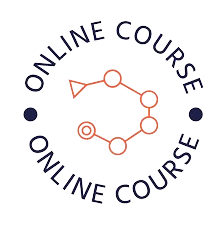Course Objectives:
- Understand the fundamental concepts of artificial intelligence (AI).
- Explore the history and evolution of AI.
- Learn about different AI techniques and algorithms.
- Apply AI concepts to real-world problems.
- Develop a basic understanding of AI ethics and societal implications.
Unit 1: Introduction to AI
- What is AI?
- History and Evolution of AI
- Types of AI (Narrow, General, Super)
- AI Applications in Everyday Life
Unit 2: Machine Learning
- Supervised Learning
- Regression
- Classification
- Unsupervised Learning
- Clustering
- Dimensionality Reduction
- Reinforcement Learning
- Neural Networks
Unit 3: Natural Language Processing (NLP)
- Text Preprocessing
- Sentiment Analysis
- Machine Translation
- Chatbots and Virtual Assistants
Unit 4: Computer Vision
- Image Processing
- Object Detection
- Image Recognition
- Computer Vision Applications
Unit 5: Robotics
- Robotics Basics
- Types of Robots
- Robotics Applications
- Challenges and Future Trends
Unit 6: AI Ethics and Societal Implications
- Ethical Considerations in AI
- Bias and Fairness in AI
- Job Displacement and Economic Impact
- AI Governance and Regulation
Assessment:
- Assignments: Weekly assignments on various AI topics
- Quizzes: Regular quizzes to assess understanding of course material
- Project: A final project applying AI concepts to a real-world problem
- Final Exam: Comprehensive exam covering all course topics
Note: This outline provides a general framework for an introductory AI course. The specific content and emphasis may vary depending on the instructor and the target audience.















Leave a Reply